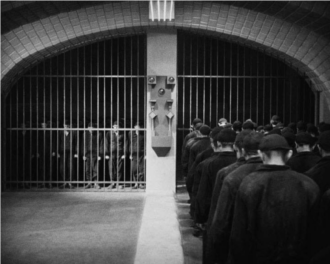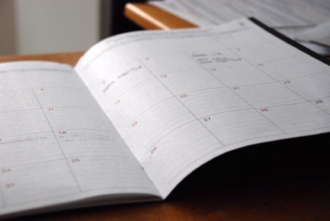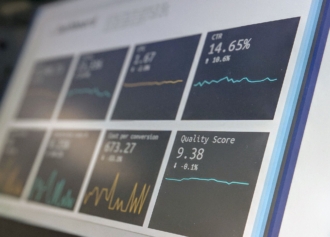The year is 300 B.C.
Zeno, a renowned philosopher and founder of Stoicism, is enjoying some steam at an Athens bathhouse.
Suddenly, Zeno remembers a lecture he needs to prepare for the following day. He isn’t ready to leave; he’s just starting to unwind after a long week of debating politics. But, he also doesn’t want to put off the lecture.
What’s a Stoic to do?
His friend, Crete of Thebes, the famed Cynic, would tell him to go. This bathing ritual is self-indulgent and one should only be concerned with the bare necessities of life.
But I’m not a Cynic, Zeno thinks, which means I don’t have to be sooo ascetic.
As a Stoic, I have to focus on what’s important, not urgent. My health is important, Zeno reasons. Hippocrates, the great physician, recommended daily baths. One vote for staying.
Then again, my students’ education is important. And as a Stoic, doing my job brings me enjoyment.
But what if the lecture doesn’t go well? Zeno asks himself. He visualizes the worst case scenario: losing his students’ attention while they pass notes back and forth on tiny pieces of papyrus.
Well, he reasons, then I should prepare myself to regain their attention. Maybe I’ll bring olives — young people love snacks.
And even if the lecture tanks, I judge myself based on my intentions and actions. What matters is that I intend to deliver a great lesson.
Zeno rolls his eyes. He knows what he must do; overcome the emotions that are urging him to stay.
“Like I once said: ‘Man conquers the world by conquering himself.’ ”
He grabs his toga and heads home to prepare the lecture.
Stoicism: a practical philosophy
Antiquity jokes aside, I first read about Stoicism as a college undergraduate. At the time, I found it interesting — as far as philosophical schools invented by ancient Greek dudes go.
It wasn’t until later, as CEO of my own company, Jotform, that I realized how Stoicism could apply to my own life. Because unlike other philosophies, many of which I find pointy-headed and better left to the scholars, Stoicism is a practical philosophy for living.
Day to day, it can help us to increase our productivity, develop expertise in our craft, and enhance our overall wellbeing. Like the fictional scenario above, we can apply it to make decisions about how to best use our time. Because as it turns out, time management was hugely important to the Stoics.
As Roman emperor and Stoic philosopher Marcus Aurelius wrote,:
“You could leave life right now. Let that determine what you do and say and think.”
Stoics believed in not wasting a single moment.
It’s no wonder that Stoicism has attracted a range of adherents, including productivity guru Tim Ferriss, who has said that he “view[s] Stoicism not only as a means for greater effectiveness — which it certainly is — but also as a tool for creating a better, less divisive world.”
As for me, I practice Stoicism with an eye toward personal productivity. Here are a few of the Stoic principles I use to guide me.
1. CHOOSE VALUABLE WORK, NOT BUSYWORK
Marcus Aurelius, who ruled the Roman empire from 161 to 180 AD, was perhaps the most prolific writer on the Stoic philosophy.
In his Meditations, Aurelius wrote:
“It is essential for you to remember that the attention you give to any action should be in due proportion to its worth…”
In other words, we should assign higher priority to more valuable activities.
When I step back to organize my priorities, I always keep this principle in mind: avoid low-value busy work, especially tasks that can be automated or delegated, and do more of the work that moves the needle for you.
For an author, that means sitting down with a blank page and writing. For a chef, it’s getting in the kitchen, combining flavors, and creating new dishes. For me, an entrepreneur, it’s reflecting on how to improve our business — rather than allowing myself to be a victim of the busy-ness epidemic.
Aurelius believed that many things we do are unnecessary, and as such, we should always ask ourselves whether a given task is necessary. If not, then eliminate it.
In his words:
“If you seek tranquility, do less. Or (more accurately) do what’s essential. Do less, better. Because most of what we do or say is not essential.”
Keep those words in mind as you move through your day: do less, better.
2. DECIDE WHAT’S IN YOUR CONTROL, AND DON’T WORRY ABOUT THE REST
Epictetus, a prominent Stoic philosopher in the first and second centuries A.D., considered this the chief task of Stoicism:
“To identify and separate matters so that I can say clearly to myself which are externals, not under my control, and which have to do with the choice I actually control.”
This dichotomy can help us to focus our time and energy on what we can control and not waste time stressing about external forces.
Each day, countless issues are out of our hands: train delays, tardy colleagues, faulty technology. These things are inevitable. And it’s better to acknowledge our powerlessness and move forward than to waste time worrying about them.
What’s more, negative emotions like stress have been shown to hinder productivity and performance.
To cite one example, in a study of 137 managers enrolled in an executive MBA program, researchers found that negative emotions led managers to decrease their effort or time at work, lower their performance or quality standards, or decrease their commitment to their organizations.
So ask yourself every day: is this within my control? By focusing on what is, we can save time and boost positive emotions in the workplace.
3. LIVE BY YOUR ACTIONS, NOT YOUR WORDS
Words are procrastination’s best friend. We tell ourselves we’ll get to that project later, instead of sitting down and tackling it now. We make a list of reasons to avoid a task. In effect, we give ourselves the emotional comfort to procrastinate.
But Stoics don’t care about words. To them, actions are everything. We can only judge ourselves based on behavior.
I’m no stranger to procrastination. It’s one of the hurdles I’ve had to overcome in order to grow Jotform to over 4.5 million users. And as a bootstrapper, without any investors dangling the carrot in front of me, I’ve had to find my internal motivation. Often, I’ve looked to Stoicism for inspiration.
In a letter to his older brother Novatus, Stoic philosopher Lucius Annaeus Seneca, better known as “Seneca,” described a method he used to measure himself objectively at the end of each day. He’d ask:
How am I better today?
What did I do with my time?
What were my outcomes?
I’ve adopted a similar ritual. As I shut down my computer, I think about what I’ve done, not what I’ve said I’ll do. Keeping that looming self-assessment in mind helps me to work productively, even when I’m low on motivation.
After all, we don’t need motivation to get things done.
4. PICTURE THE WORST CASE SCENARIO
Another buddy of procrastination is fear — the fear that we won’t be able to accomplish a task, or simply, fear of the hard work required.
Using a practice called “premeditatio malorum,” (Latin for the premeditation of evils), Stoics take a proactive stance against fear and any potential setbacks.
They imagine anything that could possibly go wrong, and in doing so, they psychologically prepare themselves for whatever the future holds.
As Seneca once wrote to a friend, “Nothing happens to the wise man against his expectation . . nor do all things turn out for him as he wished but as he reckoned — and above all he reckoned that something could block his plans.”
By preparing ourselves for any potential disruptions, we start to feel less afraid. In the case of a lecture, for example, the teacher imagines the projector malfunctioning or the students losing focus. So he prepares himself for those possibilities, and in doing so, alleviates his fears.
Premeditatio malorum helps us to stop avoiding things and start getting them done.
5. TODAY COULD BE YOUR LAST DAY. LIVE IMMEDIATELY
One simple but powerful Stoic practice is being ever-conscientious of your mortality. It sounds morbid, but it isn’t. I think of it as a rallying cry; a commitment to squeezing the most from every drop of life.
Seneca captured this idea when he wrote:
“We are not given a short life but we make it short, and we are not ill-supplied but wasteful of it.”
Time is our most precious commodity, and too often, we don’t treat it that way.
Sure, it feels good to binge-watch a series or to get lost in our social media feeds. We’re all guilty of it sometimes.
But we have to reel ourselves back in, and be mindful of the value of our time.
Writing about Seneca’s “On the Shortness of Life,” James Clear sums it up nicely:
“Putting things off is the biggest waste of life: it snatches away each day as it comes, and denies us the present by promising the future: live immediately.”
Live immediately. Live for the present. Live in the now. However you put it, today could be your last — so live like it.

























































Send Comment:
3 Comments:
More than a year ago
Since you like Stoicism, you may enjoy the book Infinite Moral Compass.
More than a year ago
Thanks a lot Aytekin?
More than a year ago
Nice, I've always lived for the now and never knew thier was a word or philosophy of my life's outlook.